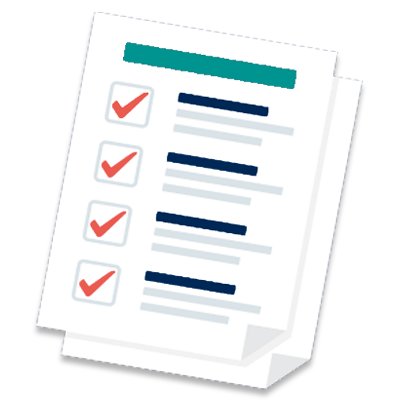Should You Consolidate Your Retirement Accounts?

Changing jobs has become more common than ever. According to career website Zippia, the average person changes jobs 12 times during their career. With multiple job changes, it’s likely that you’ve accumulated several 401(k) accounts and possibly other retirement accounts along the way.
So, the question is, does it make sense to consolidate your retirement accounts? Like many financial decisions, the answer depends on your unique situation.
How Do I Know If Consolidating My Retirement Accounts Is the Right Choice?
Consolidating retirement accounts can help simplify your financial life, but it’s important to know the pros and cons before making that decision. Consider the number of accounts you have, the fees associated with them, the investment options available, and your overall financial goals. If you’re unsure about whether consolidating is right for you, consult your financial advisor.
What Types of Retirement Accounts Can I Consolidate?
You can consolidate several types of retirement accounts, including:
- 401(k) accounts.
- 403(b) accounts.
- IRAs (Traditional and Roth).
- Other employer-sponsored retirement plans.

Financial Advisor Evaluation Checklist
Our Financial Advisor Evaluation Checklist outlines the questions you should ask any advisor or firm you’re considering hiring. Using the Checklist, you can make side-by-side comparisons of potential firms designed to help you feel confident in taking the next step.
How Does Consolidation Affect My Required Minimum Distributions (RMDs)?
When you consolidate your accounts, managing and tracking RMDs can become much simpler. Fewer accounts mean fewer calculations and less paperwork, making the process more straightforward. However, remember that the total dollar amount doesn’t change your consolidation, but it will be easier to distribute.
Can I Consolidate My Accounts If I’m Still Employed?
Yes, you can consolidate old 401(k)s from previous employers into your current employer’s plan, assuming your employer allows rollovers. However, it’s generally not advisable to roll your current 401(k) into an IRA while you’re still employed, as it could impact your ability to access funds or take advantage of certain employer benefits.
How Do I Start Consolidating My Retirement Accounts?
Begin by taking inventory of all your retirement accounts. Understand the rollover rules for each and consider consulting with your financial advisor. This is a good time to review your investments and allocations to determine whether your previous retirement accounts remain aligned with your current risk tolerance and retirement goals.
What Are the Pros and Cons of Consolidating Retirement Accounts?
Consolidating your retirement accounts can potentially provide benefits that make managing your investments more efficient. However, before making any decisions, it’s important to understand how consolidation fits into your overall financial strategy and any potential trade-offs.
Pros of Consolidating Retirement Accounts
- Convenience: Managing one account instead of several makes it easier to track your investments and adjust your portfolio as necessary.
- Reduced fees: Consolidating accounts might save on investment management and account maintenance fees.
- Investment options: Certain retirement plans offer limited investment choices, and consolidation can help give you access to a wider variety of options.
- Simplified beneficiary management: With one account, it’s easier to keep track of beneficiaries and make necessary updates.
If you are thinking about rolling over past 401(k)s into your current employer’s plan, make sure to check with your employer first. Some employers might not allow rollovers.
You can typically access the Summary Plan Document, which outlines eligibility requirements for rollovers. If rolling over into your employer’s plan isn’t an option, consider rolling your accounts into an IRA, but it’s very important to weigh the investment options, fees, and tax implications.
Cons of Consolidating Retirement Accounts
- Potential tax consequences: Depending on the type of retirement accounts you have and how you consolidate them, you may experience tax implications. It’s important to understand how this might affect you.
- Higher fees: While consolidating often leads to lower fees, there’s a chance it could result in higher management fees, particularly if you choose an account with higher costs.
- Loss of benefits: Moving money from a former employer’s plan could mean losing certain benefits, like grandfathered benefits, which allow you to work with certain custodians.
- Limited investment options: The account you consolidate into might offer fewer investment choices than your previous plans.
When Should I Consider Consolidating?
Timing is an important consideration when determining whether to consolidate. It can make sense to consolidate if you have several small accounts or concerns about the financial stability of a former employer.
Accounts with less than $5,000 that you don’t actively maintain could eventually be turned over to the state through a process known as “escheatment.” If you’re nearing retirement age but not quite 59½, consider how consolidation will affect your ability to access funds, particularly if you plan to retire early. Keep in mind that under the “Rule of 55,” you can withdraw from your employer-sponsored retirement accounts without a penalty if you leave your job at age 55 or older.
What Else Should I Know About Consolidating My Retirement Accounts?
Be mindful of tax consequences because rolling funds from one retirement account to another can trigger tax events, depending on the type of accounts involved.
Additionally, some retirement accounts may charge fees for rollovers or transfers. It’s important to factor these fees into your decision. Be sure to understand what charges may apply before proceeding with consolidation.
